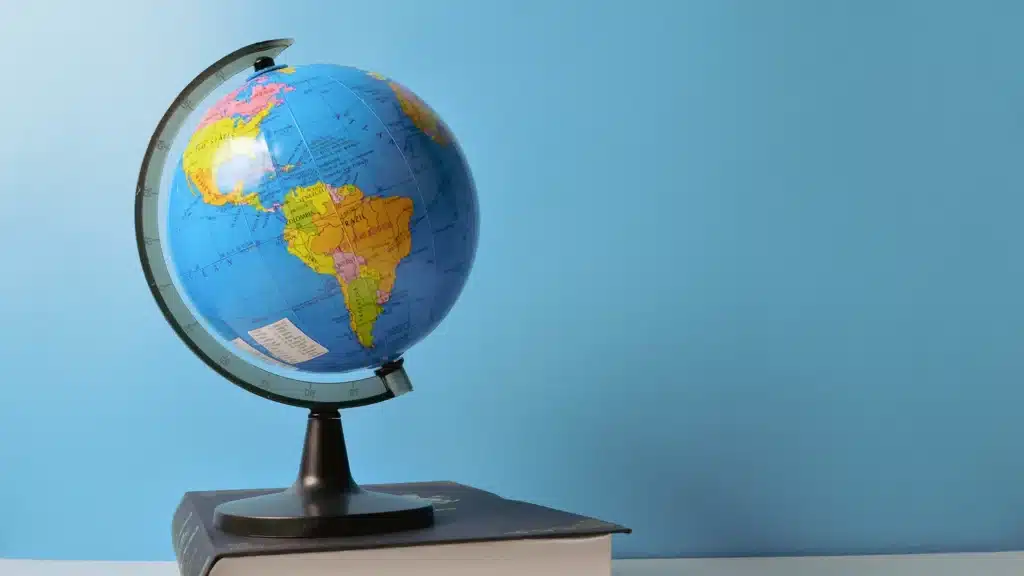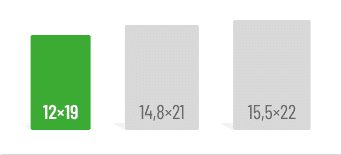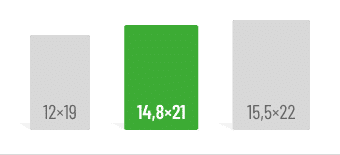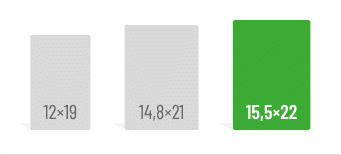GRIN: Today we are talking about the topic of self-publishing. Would you like to introduce yourself briefly?
KS: Hello, my name is Kirsten Sörries and I have been Managing Director at GRIN since 2019.
GRIN: Where do you see the advantages of self-publishing?
KS: Self-publishing is a very democratic topic for me. If you look back, around the beginning of the 2000s – when I had just finished my studies and had my first job – there were the first blogs.
Suddenly, it was possible for someone who did not want to or could not operate a large website for technical or financial reasons to publish his own magazine, a blog, via the Google Software Blogger. The entry hurdles were chosen very low or have become so, causing the blogger scene to explode. Suddenly there were blogs on the most exciting topics.
In principle, self-publishing does exactly the same thing. The barriers to entry are low and you are able to publish text content without being too tied to classic publishing processes.
In the classic publishing house, I submit my finished manuscript, then I have to get them excited about my topic and convince them that such content sells as a book. The barriers to entry are high. Self-publishing, on the other hand, gives me the opportunity to publish niche topics.
There is this beautiful saying “There are three books in every person” and we are always happy when people bring us their texts, because there are really great niche topics.
Of course, there are also books in self-publishing that are extremely successful right away and the democratization mentioned earlier is the point: everyone has the chance to write a successful book.
GRIN: I find that very exciting. I wasn’t even aware that blogging is a kind of self-publishing. You write down your knowledge and share it – just like in self-publishing. Except that there is often a service provider who helps you.
When blogging, there are many who write about their hobby, for example. What would you say self-publishing is suitable for?
KS: At GRIN we actually have two types of authors. We have those who already have finished texts in the drawer, for example a term paper, bachelor’s or diploma thesis. Self-publishing is a good option for these authors, they can simply upload their text to us or another self-publisher, ideally receive their fees at regular intervals and have the opportunity to market their book themselves.
On the other hand, self-publishing is a good option for textbook authors who say: “I want to write a book about this topic because it’s incredibly important to me, but I can’t find a publisher who wants to publish it.” For example, we have a great group of authors who are reaching retirement age and finally have time to write their book and then do so.
In mid-2019, we saw many authors writing about vanlife. It was such a fast-paced, dynamic topic. Now, in times of the pandemic, this is not only in, it makes a lot of sense. These books are selling great right now.
In short, if I am confident in my content, self-publishing is a good way for me to make my book accessible to a large audience.
At the same time, however, I am more challenged as an author in terms of marketing and the processes behind it. So if I’m someone who has precise ideas about what the book should look like and doesn’t want to be talked into it, that’s a good idea.
GRIN: I also think it’s great – I was a student myself – that the bachelor’s thesis, in which you put so much work, doesn’t just lie around. Most of the time, no one reads the paper except the lecturers. But if you publish them, you can help others and earn money at the same time.
KS: Of course, the topicality of topics is also a great advantage. If I have a very topical topic, self-publishing is also a good idea. Another example from 2019: the topic of Brexit. We received a lot of texts there. We also suddenly had 20-30 books on the topic of Fridays for Future and Greta Thunberg. I can self-publish a complete book in the time that classic publishers need to draw up the contract with authors. As a result, topics are very topical and I can be there as an author if there is also the demand. That’s a huge advantage.
GRIN: Would you say that the latest books sell best? Or are there other divisions? We have a lot of books, including numerous niche topics. What works best at GRIN?
KS: There is no one recipe for success. It is definitely important that the quality is good. That’s why, for example, the grade of a term paper or thesis is an important criterion, which is very understandable.
Niche topics also sell well again and again. These are unconventional topics such as “How can I build a surfboard?”. And classic topics, such as a literary review of Goethe’s “Faust”, are also popular because there is always a need.
At the beginning of 2020, with the beginning of the pandemic, we suddenly sold a lot of books on the topic of webinars and digitization. The books that are current have huge advantages.
But I don’t want to say: “Write a book on digitization”.
It’s important that you are convinced of your own book and take the chance, publish it and then market it well later, for example by presenting it on your Instagram account – these are the things that make a book successful. If people are interested in it, it picks up speed. If the book sells well on Amazon, it rises higher in the ranking there and the effect of the sale accelerates.
We as publishers cannot foresee it. To be honest, we have already tried to find out if it is possible to predict the success of a book through an algorithm, but it is too individual.
So: There is no one recipe, in self-publishing in principle any recipe can lead to success.
To be honest, there are books that almost never sell. But of course this is also the case in the classic book trade.
GRIN: There, too, you simply can’t always foresee it. You can plan certain things, but in the end it is up to the consumers whether they accept the book or not.
On the subject of topicality: if someone currently has a bachelor’s, master’s or doctoral thesis on the topic of digitalization, pandemic or homeschooling in their drawer, I advise uploading it now. This is currently in line with the trend and increases sales opportunities, because that’s what is needed right now.
What would you say makes GRIN special as a self-publisher?
KS: We are not just a self-publisher, but much more. Our distribution network with the German and international book trade, Amazon, but also with all e-book platforms such as google, kindle, etc. is that of a classic publisher.
Compared to the standard self-publisher, we have strong quality control. We have a large editorial team here in Munich that checks the texts for quality standards, such as the grade that the text is scientifically clean, as far as the topic of citing sources, bibliography, etc. is concerned. The things we all always hoped for during our studies, “hopefully we did everything right”. We check this and give the author important feedback in this process. If, for example, a graphic or book is not well suited for printing, we will let you know. This means that nothing runs automatically with us and that is important to us. It is often a stereotype that self-publishing equals poor quality and that is not true.
Another point that sets us apart is: we have the self-publishing possibilities, we bring the whole thing into the classic distribution channel, but our own online shop – there are now even four – has become extremely large and strong, especially in terms of visibility. For almost every keyword, you will probably find a hit for a book or e-book at GRIN. This means that we offer our own platform as a shop in addition to the classic book trade.
And it is important how we deal with customers and authors. We have customer support. We don’t have chatbots, we don’t have phone routing à la “press 2 to get to XY”. That’s important to me personally. With us, as an author, you usually talk to the same contact persons and every question is dealt with. There is rarely the statement “We won’t find a solution”, on the contrary, the team does a great job and always tries to find solutions for authors or customers that they can live with. That’s what makes us special too.
We have a great team that lives this topic. Many of our editors write books themselves and are very active in them, we have a great affinity for them and I think you can tell that. We just enjoy it!
GRIN: That’s right. I think that many people are not aware that there are also quality controls behind self-publishing. You often assume that you are left completely alone, that you upload and then the text disappears somewhere on the Internet. This is not the case with us, there are controls, feedback and our sales network. It has to be said that this complete service is free of charge.
KS: Exactly. In reality, the moment you upload your text, you start a dialogue. And you can always call or write and say “I have a question about the contract” and the question will be answered. No one says: “Now finally conclude the contract”, time is taken.
GRIN: Of course, that all sounds good – time is taken, you are taken by the hand, there are quality controls. In your opinion, are there any disadvantages of self-publishing compared to a classic publisher?
KS: Yes, of course there are, you have to deal with it quite openly.
There are publishers who, if they are convinced of a book, pay a one-time fee and later allow authors to participate in the sales figures. If I have a promising book, it’s a valid option for many authors. Think, for example, of travel writers – the travel costs are already covered and all sales proceeds afterwards are a bonus, so to speak.
In self-publishing, fees are usually not paid in advance, so a book has to sell first. However, we at GRIN are very transparent in our participation and how such a fee is made up and pay good fees in comparison.
Another point is that in self-publishing you are challenged as an author yourself. No one organizes a reading for me in the bookstore, no website is built, these are all things that I have to tackle myself. At the same time, I have the possibilities to do it exactly as I think it is good and right. If I want to present my book at a poetry slam, for example, then I can do that and no one will interfere with me.
In self-publishing, it is in a certain way uncertain whether a book will sell well or badly. A classic publisher can calculate this well and will tell you early on whether your book will sell or not.
Personally, however, I think that you can accept these disadvantages well, because that’s why my book is in the world, I have an ISBN number, I’m found, I can see my own book on Amazon, which of course is all a great reward for your own recognition.
GRIN: It is also difficult to compare a self-publishing house with a classic publishing house. As I said, there are different types, each of which decides on a certain type of publisher.
Do you have any tips for those who want to go down the path of self-publishing?
KS: In any case, the topic of the book title and blurb is important – here you should formulate concisely so that, like a newspaper headline, it is recognizable at a glance: This is what this book is all about. That helps enormously.
In addition, our editorial team provides support with title and blurb optimization – this is something we do as standard, for example, to bring in relevant search engine terms.
The next thing is: I’m my own marketing agency. As an author, I have to take over this job completely, and I have to think about it: Where are people who want to read my book on the move? How can I address them?
For example, are they people who are active on social media? Then I can specifically tease my book via my own timeline, market, etc.
General: Spread the word. Having your own book is something to be proud of and so I should tell all my friends about it and they might tell it to others. The important thing is: Spread, spread, spread.
It’s nice when you discover a great review of your book on Amazon, for example – that shows that you’re on the right track.
GRIN: So you shouldn’t just think about the content, but also about all the trappings.
Thank you, Kirsten, for giving us an insight into the self-publishing world and tips on how to do it!
KS: Thank you too!
Did you know? GRIN no longer only offers self-publishing for academic texts, but also for fiction, biographies, guidebooks and non-fiction! Publish your book with us – we support you step by step: https://www.grin.com/en/selfpublishing/
Want to keep reading?
Do you like our magazine? Then sign up for our newsletter now!









